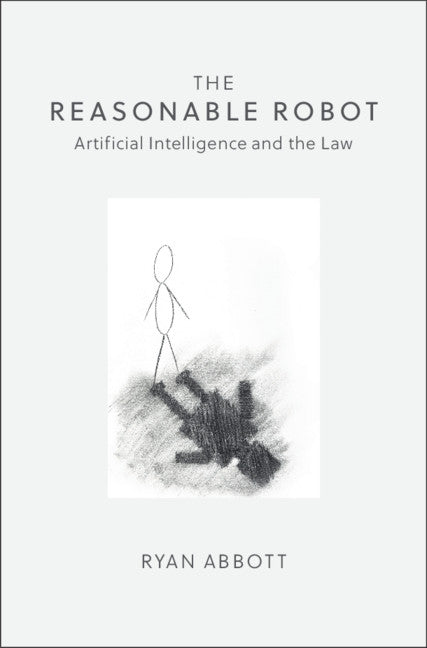Freshly Printed - allow 6 days lead
Couldn't load pickup availability
The Reasonable Robot
Artificial Intelligence and the Law
Argues that treating people and artificial intelligence differently under the law results in unexpected and harmful outcomes for social welfare.
Ryan Abbott (Author)
9781108459020, Cambridge University Press
Paperback / softback, published 25 June 2020
300 pages
23 x 15.2 x 1 cm, 0.25 kg
'This work should be read by anyone interested in the rapidly evolving relationship between AI and the law.' Christian Mammen, Practice Source
AI and people do not compete on a level-playing field. Self-driving vehicles may be safer than human drivers, but laws often penalize such technology. People may provide superior customer service, but businesses are automating to reduce their taxes. AI may innovate more effectively, but an antiquated legal framework constrains inventive AI. In The Reasonable Robot, Ryan Abbott argues that the law should not discriminate between AI and human behavior and proposes a new legal principle that will ultimately improve human well-being. This work should be read by anyone interested in the rapidly evolving relationship between AI and the law.
Introduction. Artificial intelligence and the law
1. Understanding artificial intelligence
2. Should artificial intelligence pay taxes?
3. The reasonable robot
4. The artificial inventor
5. Changing intellectual property standards
6. Punishing artificial intelligence
7. Alternative perspectives on artificial intelligence and AI legal neutrality
Third party materials
Index.
Subject Areas: Artificial intelligence [UYQ], Technology: general issues [TB], Impact of science & technology on society [PDR], Philosophy of science [PDA], IT & Communications law [LNQ], E-commerce law [LNCB2], International law of transport, communications & commerce [LBD], Law & society [LAQ], Economics [KC]


